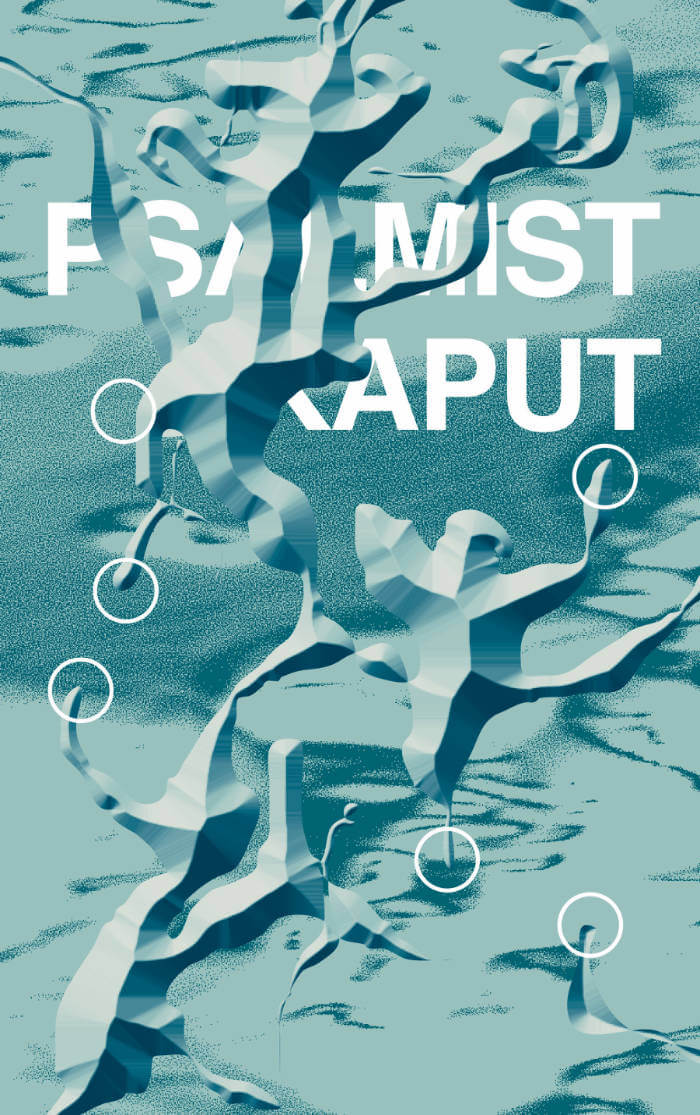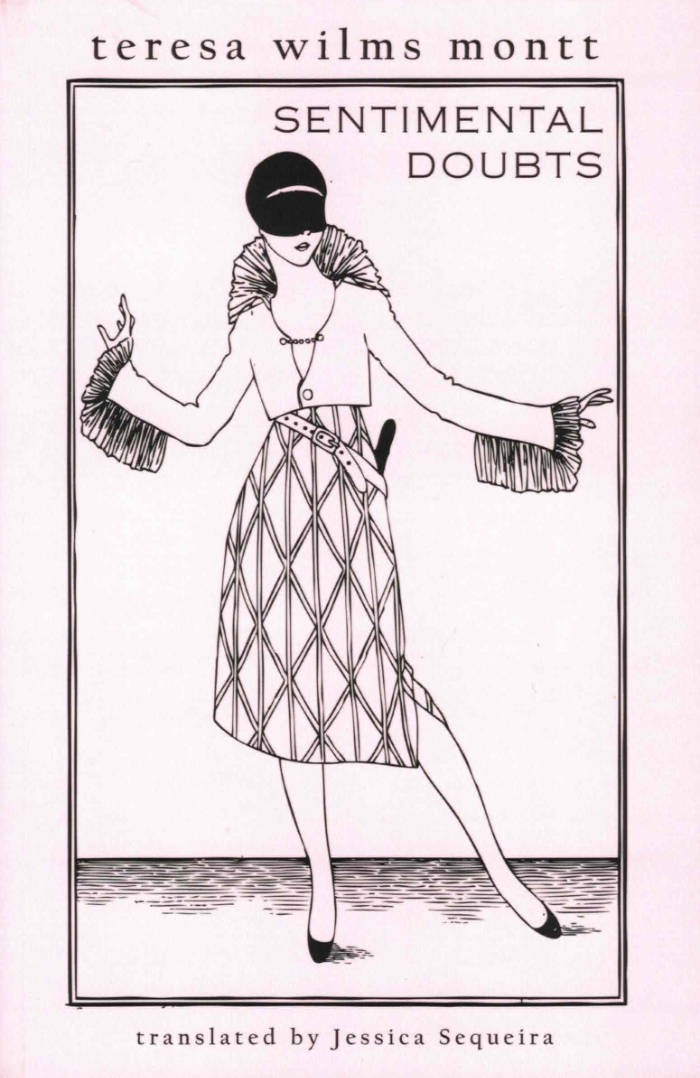Books: english
Books: english
in random order

Don't Call Us Dead
Award-winning poet Danez Smith is a groundbreaking force, celebrated for deft lyrics, urgent subjects, and performative power. Don’t Call Us Dead opens with a heartrending sequence that imagines an afterlife for black men shot by police, a place where suspicion, violence, and grief are forgotten and replaced with the safety, love, and longevity they deserved here on earth. Smith turns then to desire, mortality—the dangers experienced in skin, body, and blood—and a diagnosis of HIV positive. “some of us are killed / in pieces,” Smith writes, “some of us all at once.” Don’t Call Us Dead is an astonishing collection, one that confronts America where every day is too often a funeral and not often enough a miracle.
Danez Smith is the author of [insert] boy, winner of the Lambda Literary Award for Gay Poetry and the Kate Tufts Discovery Award. Smith has received fellowships from the McKnight Foundation and the Poetry Foundation, and lives in Minneapolis.

Dear Friend Catalogue 2019-2022
Dear Friend is a monthly letter format publication covering design events, issues, and ideas. This publication distributed via snail mail is initiated by Sandra Nuut and Ott Kagovere.
The publication edited by Sandra Nuut & Ott Kagovere features all the letters from the Dear Friend publishing project, which they initiated at the Graphic Design Department of the Estonian Academy of Arts in 2018. The book includes contributions by Singapore-based design writer Justin Zhuang, designer and writer Else Lagerspetz, and artist Lieven Lahaye. The book is designed by Ott Kagovere and published by Lugemik and Estonian Academy of Arts.
Texts by Justin Zhuang, Lieven Lahaye, Else Lagerspetz
Letters written by Alicia Ajayi, Stuart Bertolotti-Bailey, Claudia Doms, Nell Donkers, Maarin Ektermann, Rosen Eveleigh, Maryam Fanni, Saara Hannus, Eik Hermann, Paul John, Maria Juur, Ott Kagovere, Maarja Kangro, Arja Karhumaa, Kristina Ketola Bore, Nicole Killian, Rachel Kinbar, Tuomas Kortteinen, Keiu Krikmann, Kadri Laas, Else Lagerspetz, Lieven Lahaye, James Langdon, Jungmyung Lee, Kai Lobjakas, Michelle Millar Fisher, Maria Muuk, Sheere Ng, Sandra Nuut, Laura Pappa, Jack Self, Indrek Sirkel, Paul Soulellis, Triin Tamm, Laura Toots, Alice Twemlow, Loore Viires, Sean Yendrys, Justin Zhuang

Épopées Célestes / Epopee celesti
Gustavo Giacosa, Barbara Safarova
A veritable panorama of Art Brut at an international level, through 180 works selected from Bruno Decharme's collection.
Art brut has never ceased to shake up the history of art and nourish minds resistant to norms as it questions classic notions of art and creation as well as those relating to the normal and the pathological. But who are they, these artists of a special kind, witnesses to another world, strangers to stylistic trends and influences? They stay—or are kept—away from the culture of fine art as well as the codes and places that constitute it such as schools, academies, museums, art fairs, etc.
Featuring A.C.M., Noviadi Angkasapura, Anselme Boix-Vives, Marie Bodson, Giovanni Bosco, Gustavo Enrique Buongermini, Aloïse Corbaz, Fleury-Joseph Crépin, Egidio Cuniberti, Henry Darger, Fernand Desmoulin, Janko Domsic, Dong-Hyun Kim, Jaime Fernandes, Eugen Gabritschevsky, Pietro Ghizzardi, Madge Gill, Paul Goesch, Jorge Alberto Hernández Cadi, Paul Humphrey, Zdeněk Košek, Joseph Lambert, Gustave Pierre Marie Le Goarant de Tromelin, Augustin Lesage, Pascal Leyder, Alexander Pavlovitch Lobanov, Ramon Losa, Dwight Mackintosh, Lázaro Antonio Martínez Durán, Mettraux, Edmund Monsiel, John Bunion Murray, Iwona Mysera, Koji Nishioka, Masao Obata, Jean Perdrizet, M. Pierron, Photographies Spirites, Miloslava Ratzingerová, Marco Raugel, Achilles G. Rizzoli, Leopold Strobl, Harald Stoffers, Mose Tolliver, Melvin Way, Scottie Wilson, Adolf Wölfli, Anna Zemánková, Carlo Zinelli, Unica Zürn.

Where does a Body begin? Biology's function in contemporary capitalism
We are presenting here a very fun, yet rigorously peer-reviewed and intellectual work from a Ph.D scholar with a renowned sense of humor, introduced by another fantastic artist and thinker from another universe. To cap it off, the book is illustrated by Rachel Lillim, whose visual style is so compelling that it helps everyone see the work for what it is: otherworldly, playful and queer, but serious and discerning at the same time. It's a biology text about the body put together by a team of those who are, by and large, under- represented in the field.
With a Foreword by i0 xen0

Disidentifications: Queers of Color and the Performance of Politics
An important perspective on the ways outsiders negotiate mainstream culture.
There is more to identity than identifying with one’s culture or standing solidly against it. José Esteban Muñoz looks at how those outside the racial and sexual mainstream negotiate majority culture—not by aligning themselves with or against exclusionary works but rather by transforming these works for their own cultural purposes. Muñoz calls this process “disidentification,” and through a study of its workings, he develops a new perspective on minority performance, survival, and activism.

Affects & Dreams: a manual for Becoming
Affects & Dreams: a manual for Becoming, the first book authored by niko mas, is a relatively quick dive into the waters of Becoming; a schizo-guide to our publishing practice (why, how, and for what cause do we publish/transmit). We tell the story of a radio show that bridged our project Crossdressing Diogenes with our latest project, Becoming. In telling the story of how we arrived here at all, we have a chance to index all of the fields and domains that Becoming has entered into so far, and begins to maniacally draw lines through many subjects.
Some of the topics covered here include:
Images of Thought, Listening modes, Negativity and The Ear, Minimalism, Honest Electronics, Logocentrism, Metaphysics of Presence, Natural
Physics, Lumbung Radio, Rave Culture, Tripping, Radio Control Rooms, Analogical Transmissions, Anamorphoses, Insomniac Dream-Machines.

I Love Shopping
Chickens have a collective soul. Heaven is full of the skateboarders you kissed in middle school. If the algorithm is its own hell, Lauren Cook, author of the critically (and uncritically) acclaimed Sex Goblin, stands in front of it fully armored. I Love Shopping invites its readers to inhabit a world just like ours, reflected through a big, benevolent funhouse mirror.
First published in a limited edition, this is the first trade edition of the cult classic.

Angst
In 1942, butcher Heinrich Angst started to set up his own business in Zurich. Today, Angst AG operates the municipal abattoir and supplies catering businesses and butchers throughout the canton. Angst is a book documenting an installation with 50 used and framed sausage wrapping papers presented at Fondation Fernet Branca in Saint Louis, France. On the other hand the book is gathering 50 systemically relevant poems surrounding writing, everyday life as a dance with obligation and panic, a society without children, fear as a fundamental quality of life and hopefulness to bury fear together.

To Become Two
To Become Two: Propositions for Feminist Collective Practice offers a narrative of artist Alex Martinis Roe’s research into a genealogy of feminist political practices in Europe and Australia from the seventies until today.
These practices include those of the Milan Women’s Bookstore co-operative; Psychanalyse et Politique, Paris; Gender Studies (formerly Women’s Studies) at Utrecht University; a network in Sydney including people involved in the Sydney Filmmakers Co-operative, Feminist Film Workers, Working Papers Collective, and the Department of General Philosophy at Sydney University; and Duoda – Women’s Research Centre and Ca la Dona, a women’s documentation centre and encounter space in Barcelona.
Drawing from their practices and experiences, Martinis Roe’s research forms a proposal for a transgenerational approach to feminist politics. This is further developed as a practical handbook of twenty new propositions for feminist collective practice, which were formed in collaboration with a network of contributors through experiments with these historical practices.

Grace Crowley
Grace Crowley is a publication based on letters sent to the Australian artist and pioneer of modernist painting Grace Crowley (1890–1979) by friends, family and colleagues. Parts of those letters, which are now housed in the Art Gallery of New South Wales and the State Library of New South Wales archives in Sydney, were transcribed and categorised by Riet Wijnen in subsections such as ‘Marital Status’, ‘Teaching’, ‘Hosting’, ‘Eurasia’, ‘X’, ‘Being A Woman’, ‘War’, ‘$’ and ‘Making Work’. The result is an alternative biography constructed solely through a living set of relations.

Forlaget Emancipa(t/ss)ionsfrugten
Great is the Power of the Name
Signe Frederiksen, Anne-Mette Schultz
Great is the Power of the Name considers the works of authors Elena Ferrante, Pauline Reáge, Karl Ove Knausgård, Colette and artist Lee Lozano.
In 2016, when Anne-Mette had invited Signe to take on the role as editor of her text The Institute of Applied Speech, they both began reading Elena Ferrante's The Neapolitan Novels. They were specifically fascinated by the author’s use of pseudonym. Anne-Mette's Institute of Applied Speech was a tale of a fictive place, a pseudo-topos, and Elena Ferrante’s ideas about the pseudonym as a space for the writing itself was useful in thinking about fictive authorship. In a number of written interviews, Elena Ferrante unfolds the feminist perspective of her use of pseudonym. They were attracted by the idea that the author could avoid the biographical question; that she could disappear behind her own writing.
To them, the artist Lee Lozano is the ghostly presence of hard-core moralist and humorous fuck-off art from another decade. During the course of her life, Lozano continuously reconfigured and gradually dissolved her own name, starting from Leonore Knaster ending up with E. Her work Boycott Women, in which she decides not to have any contact with women, expands the notion of feminist critique.
Great is the Power of the Name publishes a readership interested in the position of the artist, and how it conditions the way we make art.

La Captive
In the fifth published title of the Decadent Editions series, Christine Smallwood explores Chantal Akerman’s adaptation of Marcel Proust’s The Prisoner, the fifth volume of In Search of Lost Time, in a text that moves elegantly between Akerman’s films, Proust’s novel, and Smallwood’s own life.

a queer anthology of wilderness
Featuring Zoe Leonard, Eileen Myles, Jimmy DeSana, Princess Julia, Olivia Laing, Simon Costin, Timothy Thornton, Mary Manning and many more. Published 2020.

We are not where we need to be, but we ain't where we were.
Tiphanie Blanc, Lili Reynaud-Dewar and 1 more
We are not where we need to be but, we ain't where we were is the first volume of a new series of publications by the collective Wages For Wages Against that reports on active research engaged within the artistic professions and institutions since 2017. Its aim is to question the underlying neoliberal logics in the contemporary art world, by orienting our object of study towards the struggles that impact it. With this publication, our hope is to put into practice various values specific to the campaign: the existence of a systematic and fair remuneration, a desire for transparency, the sharing of knowledge, and the visibilization of demands proper to the field of the visual arts and concomitant struggles. It is the result of militant experiences, at the convergence of our individual experiences and collective questionings.
With texts by Tiphanie Blanc, Antonella Corsani, Fanny Lallart, Lili Reynaud-Dewar, Ramaya Tegegne and an interview with Outrage Collectif.

Acoustic Thought
Acoustic Thought is an exegesis of the Gospel of Thomas, an apocryphal gospel found at Nag Hammadi in Upper Egypt in 1945.
With a score for six female voices by Lisa Holmqvist; a collage of writings by medieval female mystics; and photographs taken by Jeff Weber at the Coptic Museum in Cairo, during a research period at Beirut project space.
The book’s covers reconstruct patterns found on the covers of Nag Hammadi Codex II, which, as well as the Gospel of Thomas, contains the Apocryphon of John, the Gospel of Philip, the Hypostasis of the Archons, On the Origin of the World, the Exegesis on the Soul, and the Book of Thomas the Contender.
Presented and performed during Perfomance Days, Amsterdam (November 2014) and Hotel Theory, REDCAT, Los Angeles (November 2015).

Psalmist Kaput
Through the harsh noise of reality, a signal appears. At first faint, but slowly, as we approach, it grows louder, more defined. Aerial photographs depict odd structures and garbled sounds, blurred images of decaying media, alien architecture. It calls out your name.
Psalmist Kaput lures the reader into a misama of fragmented speech, disembodied voices, deteriortating thresholds, and lo-res nightmares. Fusing text and image, it is a work undefinable and wholly its own.
Enter the exclusion zone, witness its monuments, and if you're able, find your way back out again. "Soon we will all be submerged."

Fantasy
Ben Fama’s Fantasy operates in a world of Internet, glamor, and lonely 21st century adulthood, through various other sorts of intimacies that happen through global production. Fama’s language and affect flatten desire while they maintain a tone of struggle and longing. Fantasy works at the question of how to spend time while alive in a humanity close to burnout, where the value of one’s own labor is as inconclusive as the profits of intimacy. The need for things butts up against the living nihilism of late capitalism.

Minnan Exit
Since 2015, Wen-You Cai has returned on multiple occasions to her parents' hometown of Quanzhou, Fujian, to attend the funerals of her deceased relatives. The ceremonies in the Minnan region unfold like grand dramas in which she is both an observer and a participant. Throughout the ceremony, Wen-You is enveloped in the unknown; everything seems meticulously arranged. Amidst the overwhelming grief of losing loved ones, there exists a feeling of confusion, and taking photographs was one of the ways for her to engage in the funeral process.
For this photo series, Wen-You was initially confronted by her own fear of death, intertwined with her bewilderment and curiosity about the complex funeral rituals and its uniqueness inherent to Minnan culture. To demystify these subjects, Wen-You, joined by te editions, interviewed a funeral director who provides comprehensive “one-stop services,” a monk who hosts Buddhist ceremonies, and a folklorist of Minnan rituals. Minnan Exit can be interpreted as many things–a family album, a curated collection of photographs, an unfinished journey of discovery, as well as the process of Wen-You's reconciliation with her mortality.
Minnan Exit was designed by an independent graphic design studio, RELATED DEPARTMENT. Through the artist's lens, the design team sought inspiration from funeral objects and rituals, to create a visual concept for the publication's structure and layout with the regional characteristics of Minnan.
Special Interviewees: Chen Huaxian, Master Puyuan, You Gongchu (A-Bue)

Time has fallen asleep in the afternoon sunshine
Verzamelde gedichten - Against the Forgetting
For the project Time has fallen asleep in the afternoon sunshine a group of people/ performers memorize a book of their choice. Together they form a library collection consisting of living books. After years of learning by heart and reciting for readers, some of the books have now been written down from memory to create new editions, versions resulting from this process. This book is one of those books, chosen by one person, learned by heart and recited many times, and now written down again from memory. This edition is not a re-edition of the original text. It is a re-writing of the text after the process of reading, memorizing and reciting, with all the alterations that might have occured in the course of this process.
www.timehasfallenasleepintheafternoonsunshine.be

Myth Lab: Theories of Plastic Love
Myth Lab: Theories of Plastic Love is a genre-defiant sex-trip to post-human dimensions. If C.G Jung, magic-mushroom shaman Terence McKenna and Camille Paglia (Sexual Personae) had a three-way while binging on George Bataille and undergoing Hormone Replacement Therapy, their baby might be the erotic cocktail of Myth Lab. Its extreme theme is nothing less than the fate of the species.
“Brilliant and wild, Jack Skelley’s Myth Lab is a manifesto of exuberance disguised as a sci-fi sex test-center for the invention of communal futures. Skelley’s a mad scientist, scholar and poet.” - Chris Kraus, author of After Kathy Acker
“In Myth Lab, Jack Skelley adroitly molds an “Einsteinian elasticity between objects and ether” to the “clitoverse.” If this formulation seems too vast, just think about a) the last time you felt good about power and b) all the ways to say yes to pleasure as a source of liberation. In conducting a “cosmologic psychoanalysis,” Myth Lab thrillingly hot wires our neurons to an endless mirror stage reflective of our own instinctual nature.” - Kim Rosenfield, author of Phantom Captain
"An explosion of clit-cock-and-pop-culture worship. Skelley’s eroto-celestial universe fights back not only against the denial of desire – “also known as fuckheadocracy and market forces” – but against death itself." - Francesca Lia Block, author of Weetzie Bat
"A hallucinatory book that straddles gender studies, science-fiction, and cultural criticism (to name but three of many genres). Ever eager to use a newfound Skelley-ism, I urge everyone to read Myth Lab and be “Kardashian'd” with love (i.e buy it now, it's great)." - Susan Finlay, author of The Jacques Lacan Foundation
"In Jack Skelley’s Myth Lab, something weird and beautiful is forged in the crucible of infinite horny grief. It’s an epic, delirious descent into the inferno, navigating the concentric circles of romance and desire as literary malady, TikTok psyop, benevolent cosmological principle, and more. Simultaneously a quest, a physics experiment and an elegy. I loved following its narrator - a tender, erotomanic, Blakean particle - seeking and finding visionary head." - Daisy Lafarge, author of Love Bug

Starship 20
Contributors to Starship № 20:
Rosa Aiello, Terry Atkinson, Tenzing Barshee, Gerry Bibby, Mercedes Bunz, David Bussel, Jay Chung, Eric D. Clark, Caleb Considine, Hans-Christian Dany, Albert Dichy, Nikola Dietrich, Martin Ebner, Ruth Angel Edwards, Stephanie Fezer, Jean Genet, Simone Gilges, Julian Göthe, Michèle Graf, Selina Grüter, Ulrich Heinke, Toni Hildebrandt, Beatrice Hilke, Karl Holmqvist, Stephan Janitzky, G. Peter Jemison, Charlotte Johannesson, Julia Jost, Julia Jung, Jakob Kolding, Nina Könnemann, Lars Bang Larsen, Anita Leisz, Norman Lewis, Elisa R. Linn, Sebastian Lütgert, Vera Lutz, Chloée Maugile, Robert McKenzie, Ariane Müller, Christopher Müller, Robert M. Ochshorn, Henrik Olesen, Kari Rittenbach, Nina Rhode, Ulla Rossek, Cameron Rowland, Mark von Schlegell, Ryan Siegan Smith, Philipp Simon, Valerie Stahl Stromberg, Josef Strau, Vera Tollmann, Eleanor Ivory Weber, Camilla Wills, Amelie von Wulffen and Florian Zeyfang.
"This is the 20th issue of Starship and we are proud and very happy to present it, and mainly want to thank all the artists, the contributors, the columnists, and the people who helped us gather images of exhibitions past, and gave us texts from books not yet published. Starship never starts with a clear concept about its future content, or what could be called a theme, but always with a sort of attentive interest. The theme may develop through its columnists—we now think it is easy to distinguish lines of thoughts, images, and texts answering each other. But it surely does so out of this editorial interest that wanders, and finds, and collects, is enthusiastic about artworks, and texts, and people, and then, well, brings this all together in a magazine. This was our working mode during the past year, and the responsiveness of those who regularly write for Starship (the columnists) has shown us that out there others are involved in thoughts that run very much in parallel. It is a strange form, a magazine like this, not getting funded, appearing irregularly, but still following a sort of conventional form that shows its consistency. It is at its core an excess of producing something that might prove itself valuable and liberating in the future."
—Ariane Müller, Henrik Olesen

the ALL-OVER
Shifting between figuration and abstraction, comedy and doubt, order and mess, Amy Sillman's painting has greatly influenced generations of American artists.
New York-based Amy Sillman (born 1955) is one of the most beloved and quietly influential contemporary American artists. The ALL-OVER provides a comprehensive overview of her most recent bodies of work, including painting and serially exhibited large-scale abstractions, as well as diagrams, drawings, animations and sculpture.
The title of the book, and the exhibition it accompanies at Frankfurt's Portikus, refers to a concept often used to describe abstract painting (the classic instance of which is the work of Jackson Pollock). Much of Sillman's oeuvre can be categorized as such, although her abstractions often suggest recognizable forms and figures. In the 24-canvas series Panorama, motifs seem to run continuously around the walls of the exhibition space, but in fact are repeated prints of the artist's drawings with painterly interventions. The materiality is lost through the superimposition of print and oil paint; what remains is pure color and gesture. Also present here are stills from an animation developed by Sillman to be exhibited alongside Panorama and an insert made especially for the book by the artist. Alongside essays by Manuela Ammer, Yve-Alain Bois and Sillman herself. The book includes a conversation with the artist by Fabian Schöneich.

Programmed Melancholy
Gabriel Abrantes has been making a career in cinema; with numerous international exhibitions, he's been keeping prolific, with video installations, drawing, painting, and now also VR. This book, published by maat and Mousse, attests exactly this. A book that is predominantly visual and clearly structured, efficient in transposing a certain formal and conceptual attitude that runs through Abrantes's work into the book's aesthetic approach, expressing humour and irony visually within a relatively classical framework.
"The juxtaposition of references to art and cultural history with personal and socio-political commentary is a guiding thread throughout Programmed Melancholy." writes Emily Butler, in one of the essays included in this book (other texts are an interview with the artist and short essay by Rosa Lleó). Butler continues: "His works engage with our emotions, with a range of personal feelings, often humorous, potentially rousing ethical and political beliefs. Unstable, multi-faced, polysexual, his characters waver between expressing personal emotions and wider social, environmental and political concerns."

Sentimental Doubts
Teresa Wilms Montt, Jessica Sequeira
Sentimental Doubts, here translated into English for the first time by Jessica Sequeira, was iconic Chilean writer Teresa Wilms Montt’ s first book. It was originally published in 1917, in Buenos Aires, after the author had left an entire life behind her in Santiago: her husband, her parents, the convent where she’d been confined for supposedly committing adultery, and her two daughters, whom she was forbidden from seeing.
In this work, she communicates her “inquietudes”: the racing heart, the muttering mind, the explosion of doubts.
Wilms Montt subverts the religious charge of doubt to turn pain into eroticism, sadness into seduction, doubt into assertion, and there is a great beauty to be found in this restlessness and impressionistic shifting, these temporary glimmers of light on water.
Teresa Wilms Montt was born on September 8, 1893 in Viña del Mar, Chile, into an elite, well-connected family. Her first book, Inquietudes sentimentales, consisted of fifty poems with surrealist features, while her second, Los tres cantos, explored eroticism and spirituality. Both books enjoyed great success in Argentine intellectual circles. In 1918, she moved to Madrid, where she published two works widely recognized by Spanish literary critics: In the Stillness of Marble and Anuarí. Upon returning to Buenos Aires in 1919, she published her fifth book, Cuentos para hombres que todavía son niños. She died in 1921, in Paris, from an overdose of Veronal.
About the Translator: Jessica Sequeira was born in San Jose, California in 1989, and currently lives in Santiago de Chile. Her works include the novel A Furious Oyster (Dostoyevsky Wannabe), and the collection of essays Other Paradises: Poetic Approaches to Thinking in a Technological Age (Zero).
Her translations include Bernardo Couto Castillo' s Asphodels (Snuggly Books, 2020), Enrique Gómez Carrillo' s Sentimental Stories (Snuggly Books, 2019), Rafaela Contreras' s The Turquoise Ring and Other Stories (Snuggly Books, 2019), Adolfo Couve’ s When I Think of My Missing Head (Snuggly Books, 2018), and Liliana Colanzi’ s Our Dead World (Dalkey Archive).